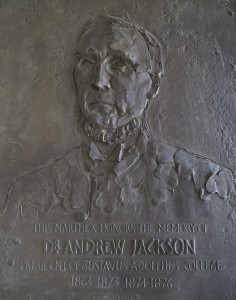Although the white settlers of Minnesota may have technically won the Dakota War, they may be losing the battle of memory. For the past 150 years the story of the Dakota War has mainly been told from the perspective of the white settlers. Recently, however, the story of the Dakota people, which had until now gone unstudied, has become the major narrative of the period.
For evidence of this merely read the posters which line the main hall of the Campus Center. These posters attempt to tell the tale of the Dakota War through the eyes of the Native Americans rather than the white settlers. This is fantastic change. We should strive to see the events of the past through as many lenses and from as many different viewpoints as possible. However, I fear that we may have swung the wheel too far in the other direction. I fear that as a result of our desire to learn the full extent of the story we may actually be giving one side short shrift.

With all the attention focused upon the plight of the Dakota before the conflict and the subsequent execution of 38 individuals after its end, we lose sight of the hundreds of white settlers who lost their lives in the conflict. We forget the suffering, the pain, the hardship and the loss of those newly arrived families during this terrible conflict. We forget how the fear of starting a new life in a new land would have been compounded by the fear of sudden surprise attack. My ancestor survived the West Lake Massacre by hiding among the corpses of his slain family members. I say this not to draw attention to the acts of violence or to try and paint the Dakota as violent savages, but to indicate that there were victims on both sides of the conflict. When we ignore the stories of an entire group of people we lose out on the most fundamental skill that history can teach us: how to empathize.
History teaches us to understand the people of the past and their stories. We learn about their emotions, motivations and ways of thinking. When we focus only on one side of a story, or on one aspect of a conflict, we lose out on a rich trove of human understanding. When we focus too much on the story of the Dakota, we lose the ability to identify with the white settlers. We lose out on their story and their point of view.
I say all of this not to condemn the authors of those posters. Nor do I mean to suggest that white mistreatment of American Indians has been in any way justifiable. I merely want to suggest that in our attempts to correct the ways we have written our narratives of the past, we must avoid completely removing the long-told narrative. When we ignore the stories and the motivations of a side in a conflict we risk repeating the mistakes that caused the violence in the first place. Furthermore, we lose an opportunity to learn from the events and people of the past. Since Gustavus was founded by white settlers under the threat of attack from the Dakota, it is all the more important to understand what this conflict meant to our founders.